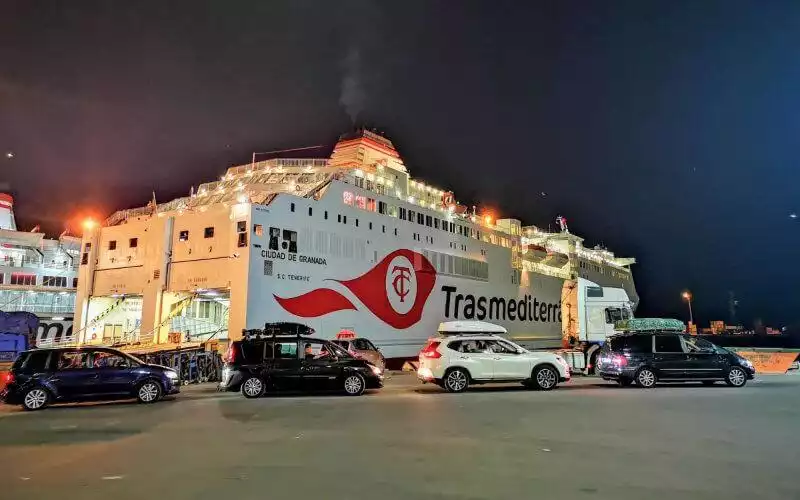Moroccan Expats Face Frustrating Border Delays as Summer Travel Season Begins

It is with a mixture of weariness and anger that Moroccans residing abroad (MREs) will begin to arrive at Moroccan ports in the coming days.
After a long journey, sometimes of several days, they are confronted with endless queues to complete tedious administrative formalities: fill out police forms, stamp their passport and register their vehicle. This laborious procedure can drag on on the boat, when all they want to do is rest before continuing the journey for hundreds of kilometers across Morocco.
While air travelers have been exempt from these police forms since 2019, MREs feel unjustly discriminated against. "It’s really a shame to ruin our family reunions with administrative hassles," laments Samira, 35, a resident of France, interviewed by Bladi.net. "We feel like second-class citizens," adds Karim, 40, a resident of Belgium.
Fatima, 50, living in the Netherlands, expresses her disappointment: "I am so disappointed by the way MREs are treated in Morocco. We are considered as cash cows, just good for sending money. We don’t feel respected or valued. It happened to me to spend the entire crossing, standing up, with my children, to finalize the formalities. And when we think it’s over with the police, we have to go to the customs for the vehicle procedure."
Amina, 25, a resident of Spain, has even decided to boycott the boat trip: "I don’t understand why the Moroccan authorities don’t do anything to simplify the procedures for MREs. The procedure can sometimes be so long that it lasts the entire crossing. If they thought better, they could manage the situation better. We often talk about dematerialization and simplification, but I’m still waiting for them. What’s the point of having a biometric passport, a national card that we boast is electronic, if in the end we have to stay the entire crossing for these procedures?"
Faced with this situation, some MREs are making an urgent appeal to the Moroccan authorities to simplify administrative procedures and facilitate their return to the country. They are demanding the outright abolition of police forms for MREs, like air travelers. Similarly, a simplified procedure must be found for the cars so that they can spend as little time as possible in customs.
The abolition of police forms would not only be a matter of convenience, but also of respect and dignity. MREs are Moroccan citizens in their own right and deserve to be treated as such. They actively contribute to the development of the country through their remittances and their commitment in their host country to defend Morocco when necessary. It is time for the Moroccan authorities to recognize their value and their contribution.
Related Articles
-

Morocco Bans Toxic Nail Products: Health Risks Prompt Nationwide Cosmetic Crackdown
31 August 2025
-

Rabat’s Urban Transport Revolution: 120 High-Tech Buses to Transform City Commutes
30 August 2025
-

Miracle at Sea: Moroccan Diver Survives 170km Drift, Rescued Off Spanish Coast
29 August 2025
-

Deadly Night Crash: 8 Killed as Truck Collides with Taxi on Moroccan Highway
29 August 2025
-

Global Crackdown: Moroccan Travelers Face Mounting Restrictions Amid Immigration Concerns
29 August 2025